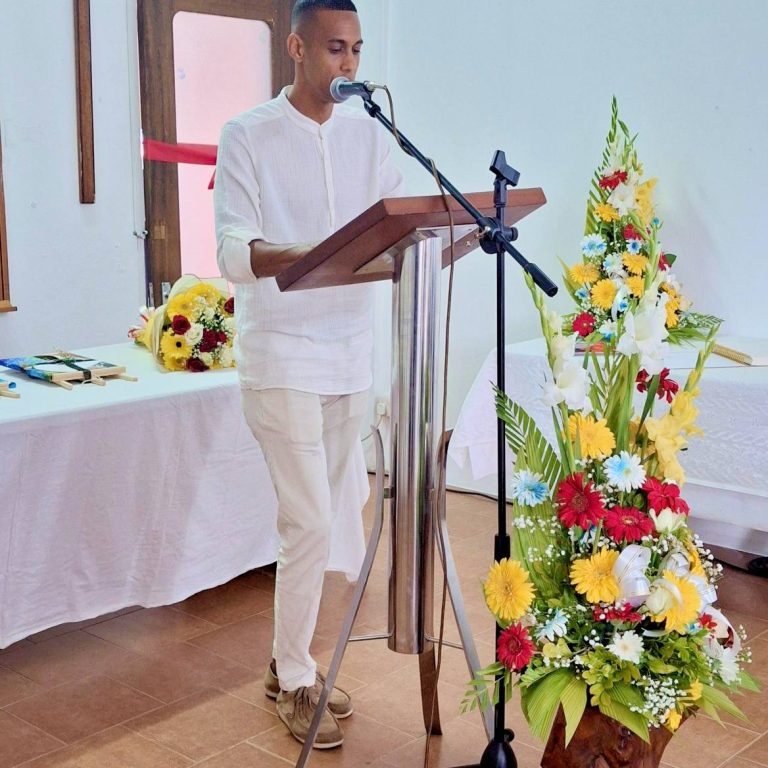
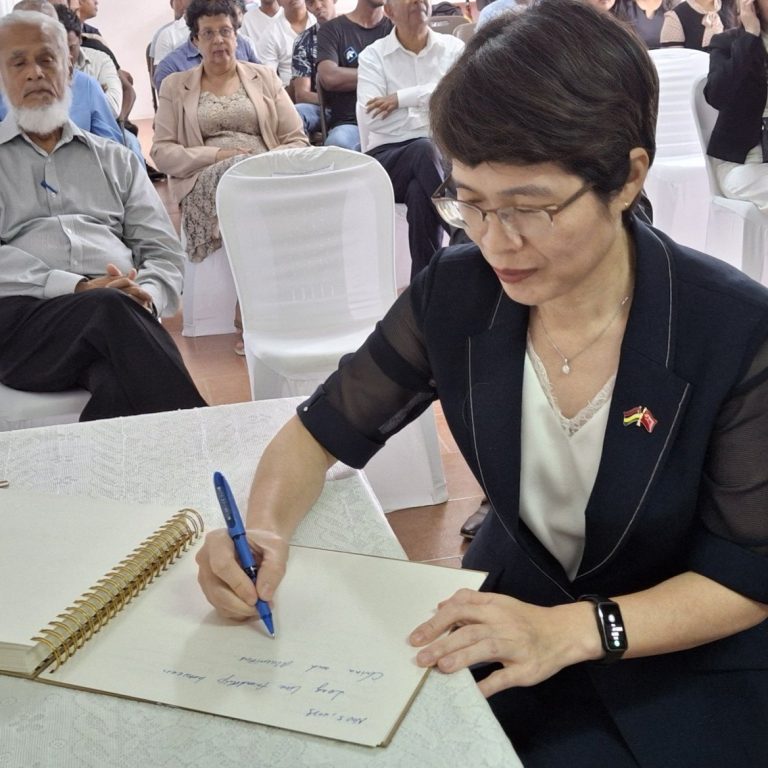
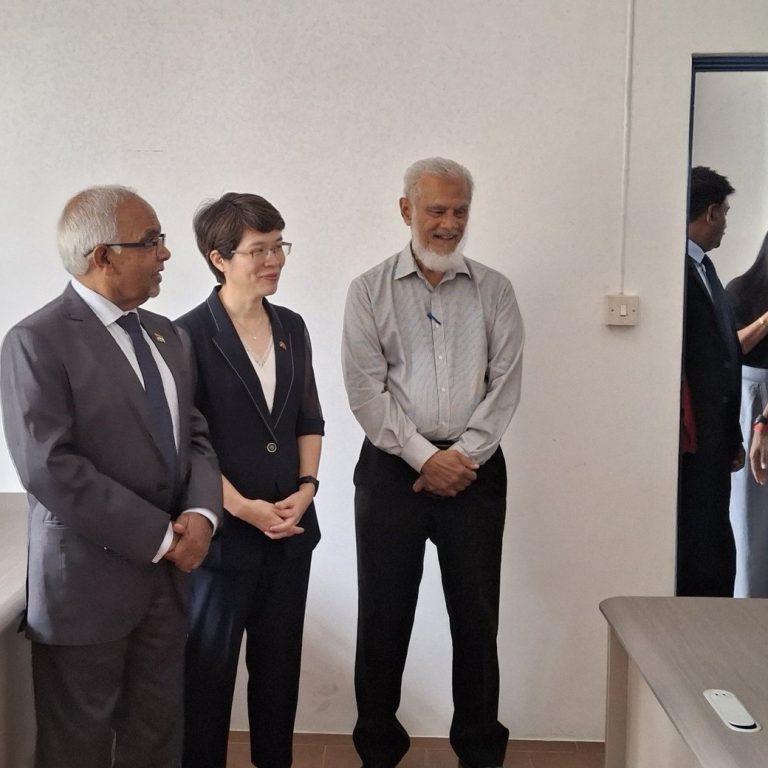
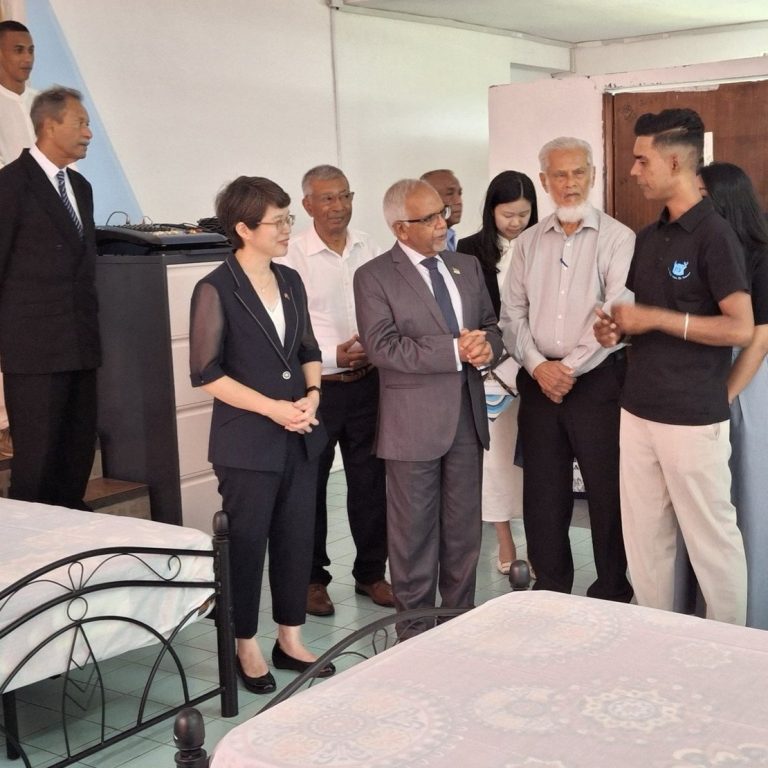
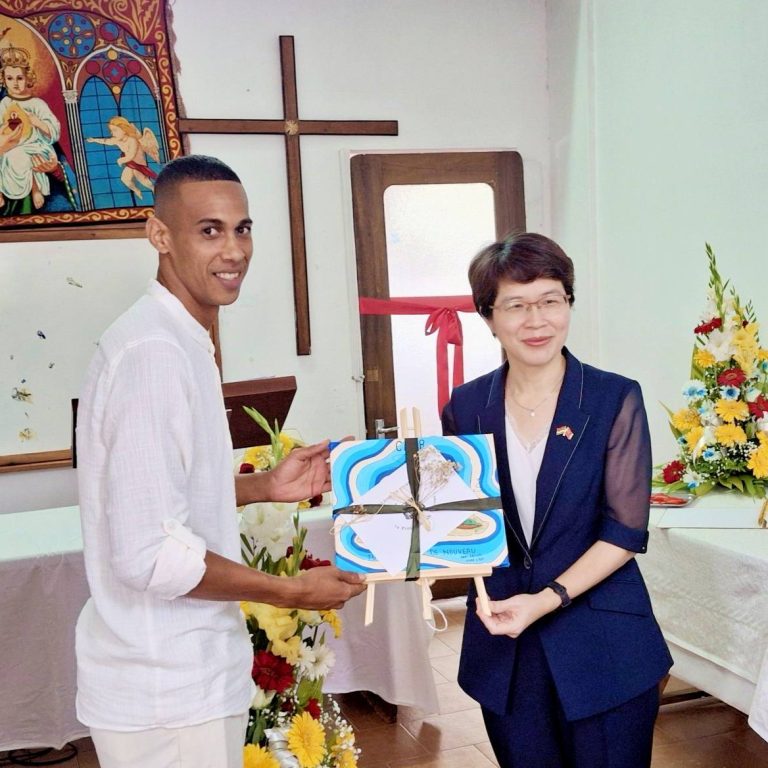
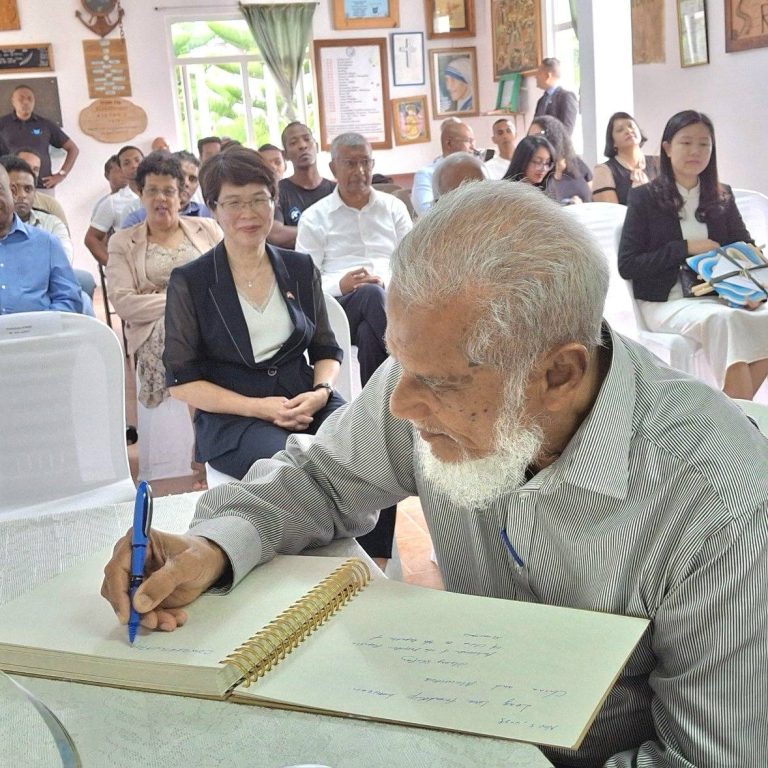
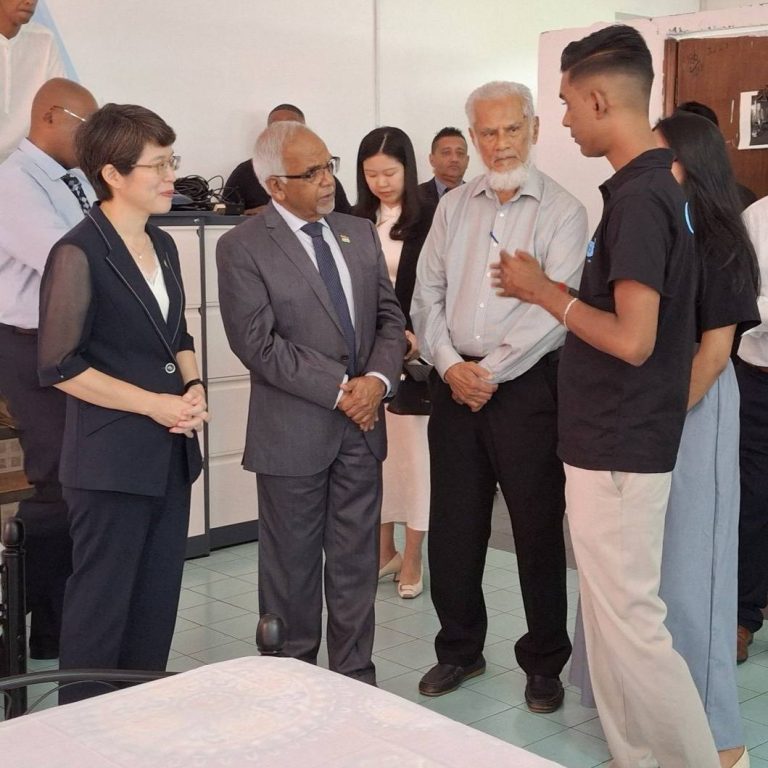
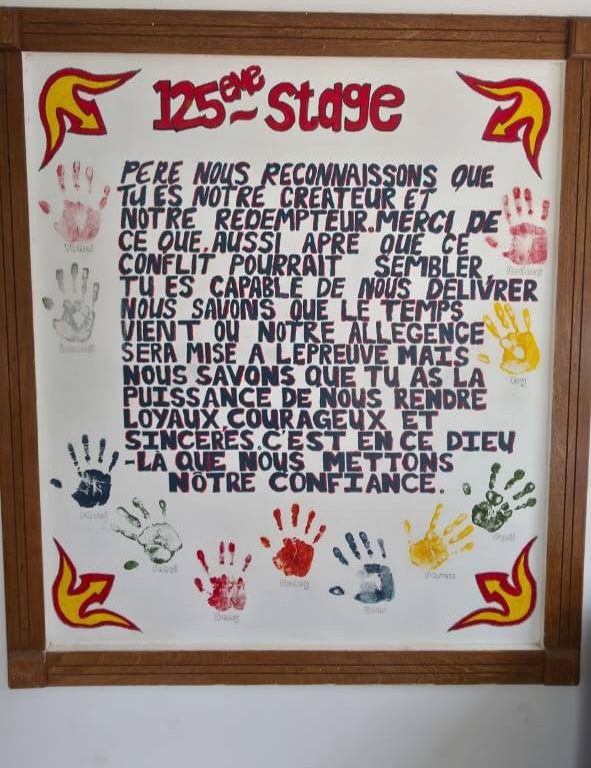
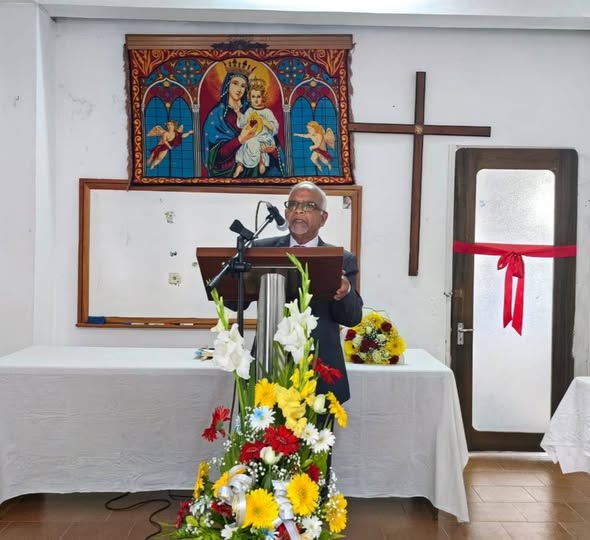
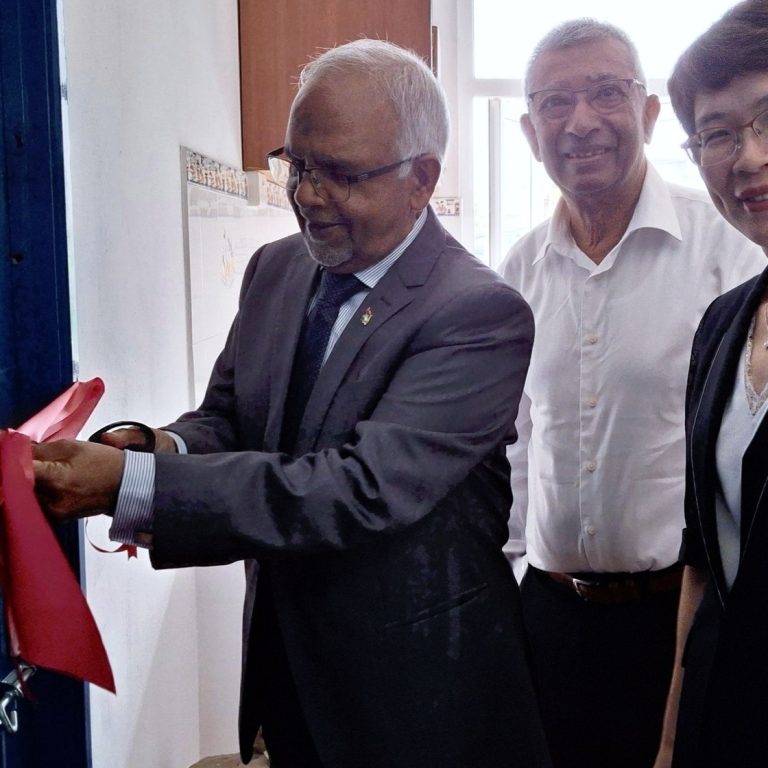
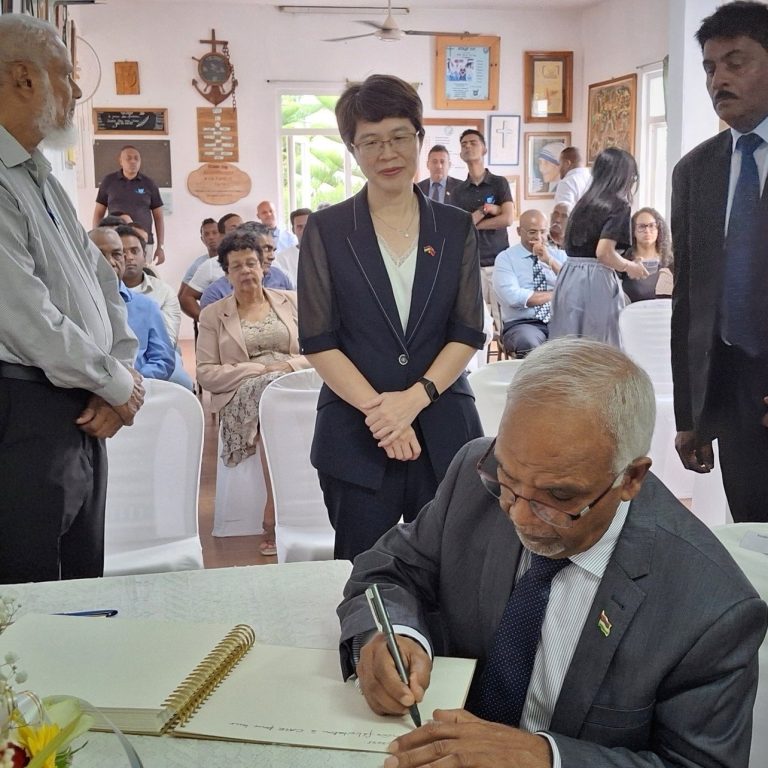
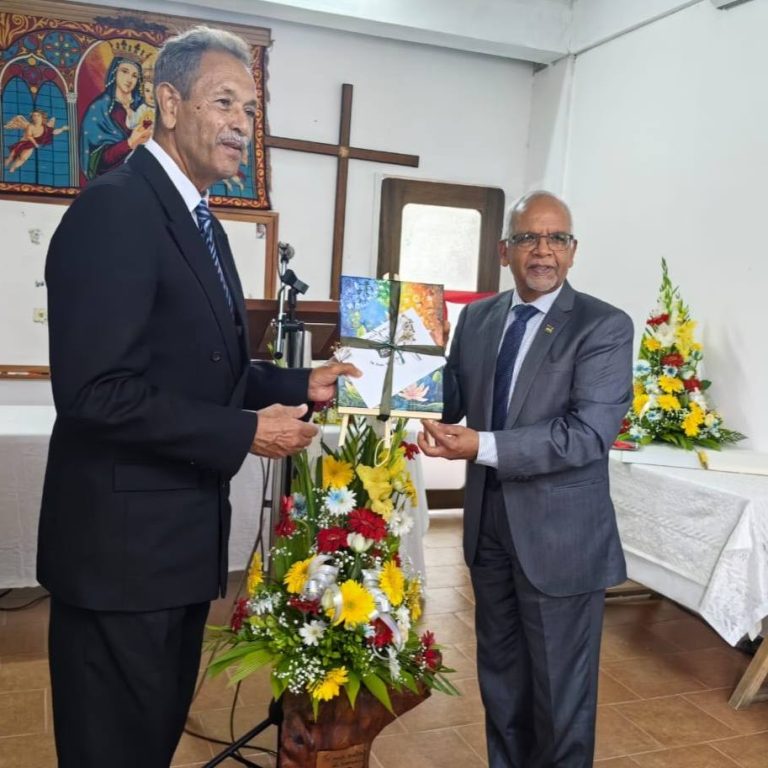
On a quiet afternoon in Terre Rouge, a light drizzle rendered the streets calm and reflective. One building, painted in shades of blue and white, looked like any ordinary house from the outside: simple, modest, almost easy to overlook.
Yet, every day, this place – the Centre d’Accueil de Terre Rouge (CATR), under the aegis of the Diocese of Port-Louis – transforms into a refuge of hope and renewal, where men, once prey to the grip of drug addiction, discover strength, dignity, and purpose anew.
I had the pleasure of visiting the Centre on Wednesday 05 November, to mark the inauguration of its newly renovated dormitory, made possible through the support of the Embassy of the People’s Republic of China.
The event brought together community members, health professionals, faith leaders, and social partners, in the presence of Her Excellency Dr. Huang Shifang, Ambassador of the People’s Republic of China to Mauritius; Mr. Sam Lauthan, Chairperson of the National Agency for Drug Control; and Mr. Jean Bruneau, President of the Executive Committee of CATR, all united by the shared commitment to the rehabilitation and reintegration of those affected by drug addiction, and to building a more compassionate and resilient society.
● 𝐓𝐡𝐞 𝐍𝐞𝐞𝐝 𝐟𝐨𝐫 𝐁𝐞𝐥𝐨𝐧𝐠𝐢𝐧𝐠 𝐚𝐧𝐝 𝐃𝐢𝐠𝐧𝐢𝐭𝐲 𝐢𝐧 𝐑𝐞𝐜𝐨𝐯𝐞𝐫𝐲
What certainly captures attention most when walking through the corridors of the Centre is the Memory Wall: a collection of posters and group photographs of every batch of residents who have successfully completed the de-addiction and rehabilitation programme.
It stands as a powerful reminder of the human capacity for renewal as residents, counsellors, and volunteers share a quiet but firm conviction: that no one is beyond redemption, and that everyone deserves a second chance at life.
Among them, Mr. Teeven Roussety.
Once caught in the grip of addiction, he has made a full recovery, and now dedicates his life to guiding other youths along the same path as the Programme Manager of CATR.
He is living proof that with care, empathy, and perseverance, change is possible.
Yet, perhaps the most striking aspect of all is his openness about his journey and the scars it has left behind.
A powerful reminder that breaking the silence around addiction, coupled with the readiness to seek help and the availability of the right support, helps to end stigma and enable both achievable and profoundly transformative recovery.
● 𝐒𝐭𝐫𝐞𝐧𝐠𝐭𝐡𝐞𝐧𝐢𝐧𝐠 𝐏𝐚𝐫𝐭𝐧𝐞𝐫𝐬𝐡𝐢𝐩𝐬 𝐟𝐨𝐫 𝐑𝐞𝐜𝐨𝐯𝐞𝐫𝐲
This event also highlights an important dimension: the enduring friendship between Mauritius and China.
Our diplomatic relations, established in 1972, have developed into a partnership based on trust and mutual respect.
But beyond official ties, it is the human impact of cooperation that reflects the true purpose of diplomacy, where collaboration between nations translates into tangible benefits for individuals and families.
I wish to extend my gratitude to Her Excellency Dr. Huang Shifang, Ambassador of the People’s Republic of China, for her presence and for the Embassy’s support in funding the renovation of this dormitory.
While it may appear a small gesture in diplomatic terms, it undoubtedly represents a meaningful contribution to the dignity, comfort, and hope of those rebuilding their lives.
In fact, I recall a moment during my visit when Her Excellency the Ambassador, with a warm smile, asked why, despite my demanding schedule, I had chosen to attend this event personally.
● 𝐅𝐢𝐠𝐡𝐭 𝐀𝐠𝐚𝐢𝐧𝐬𝐭 𝐃𝐫𝐮𝐠𝐬: 𝐀 𝐍𝐚𝐭𝐢𝐨𝐧𝐚𝐥 𝐏𝐫𝐢𝐨𝐫𝐢𝐭𝐲
The fight against drugs and the need to consolidate our efforts to prevent and rehabilitate victims of drugs, remain a major preoccupation of the State House.
It is my conviction, and that of the Vice-President, His Excellency Mr. J.Y. Robert Hungley, G.O.S.K., that every action that restores dignity and provides practical support carries real significance.
Supporting initiatives that promote recovery and well-being must therefore be both a responsibility and a reflection of our shared commitment to humanity.
● 𝗟𝗲𝘀𝘀𝗼𝗻𝘀 𝗳𝗿𝗼𝗺 𝗖𝗔𝗧𝗥
At the State House, I often engage in conversations with families affected by the scourge of drugs, with NGOs working to support them, and with individuals who have walked the path of recovery.
Their stories are a reminder that behind every statistic is a real person, a family, and a journey of struggle.
Addiction is not a moral failure to be condemned, nor a challenge to be addressed through slogans alone. It is a human condition that calls for structured, concrete, and sustained action.
Even small steps, when taken with care and respect, can make a meaningful difference.
In this context, centres like CATR demonstrate that support rooted in dignity, empowerment, and practical care can restore hope, rebuild lives, and give each person the opportunity to reclaim their future.
This is a lesson we must all take to heart: recovery is possible when all communities, institutions and sectors – government, educational, private, and families – act together with compassion, structure, and resolve.
I am certain that the newly renovated dormitory and its dedicated study space, will provide residents with both comfort and a sense of dignity in their journey towards recovery.
I would like to acknowledge and commend the laudable efforts of the entire CATR team, including Ms. Marie Cécilia Samoisy-Duvergé, who, together with the management committee led by Mr. Jean Bruneau, have fostered a space that, in my view, can serve as a powerful model for real-time social transformation
